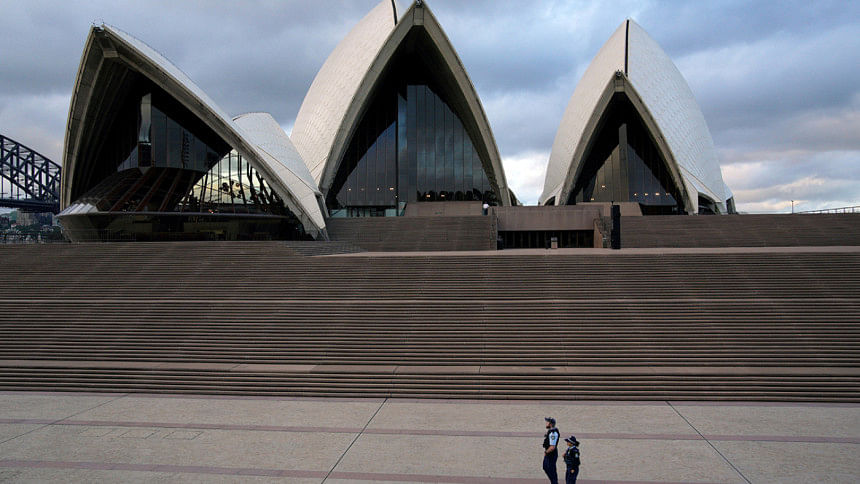‘Help us get home’: Over 150 Bangladeshis stranded in Australia appeal for repatriation

Sweety Dhar, in her mid-30s, is a cancer patient and has been in Australia for treatment since September last year.
"I finished my chemotherapy, radiotherapy and surgery recently. It's been a long and tough journey. My flight was booked on April 3 but it was cancelled, and the airline has not refunded me yet," Sweety said.
"My little girl cries for me everyday. I am desperately waiting to go back home" she told this correspondent helplessly.
She is one of the 150-plus Bangladeshis -- including tourists, students and temporary residents -- who have been stranded in Australia, made an appeal to the government to come back home.
The Australian government has already advised all temporary visa holders -- like students unable to support themselves and those on visitor visas lasting three months or less, to return to their home country as quickly as possible.
In such a situation, many students and temporary residents fell into financial hardships after losing jobs, while tourists are already in cash crunch.
The Bangladesh High Commission in Australia said they uploaded a needs assessment template on its website where persons of Bangladeshi origin in need in Australia are requested to register.
"As of now, 213 people have registered among which 159 would like to travel back to Bangladesh," Mohammad Sufiur Rahman, high commissioner for Bangladesh to Australia, told The Daily Star on Tuesday.
The applicants include government employees, bankers, doctors and teachers, and those who came for cancer treatment or to attend conference.
Syeeda Nafisa, a physician by profession, came to Australia as a visitor and has been stuck for the last one month. "I need to go back to my country to serve at this time of national crisis, since my hospital is already running short of doctors," she said.
Masrur Mahmood Shuvo, an employee of a private bank in Bangladesh, has been stuck in Australia after going on a trip with his spouse and daughter. Talking to this correspondent, he said if they fail to find an arrangement, they will have to be stranded there for next six months without income and limited access to funds. Many will have expired passports and visas, he said.
"Under these circumstances, we would request to the authorities to arrange a return flight for us. In case we can arrange a flight, we would need all cooperation from the high commission, the foreign ministry and the aviation ministry to accept our landing proposals and formalities," Masrur said.
Meanwhile, most Bangladeshi students there have their job hours slashed, while some even lost their jobs. Nearly half of them are from Victoria, while some are in New South Wales, Western Australia, South Australia and Queensland.
Mohammad Taukir Muzib, a law student at Swinburne University in Melbourne, said he lost his job and his funds are depleting. "With this fund, I might be able survive for a month," said Taukir. "Our families in Bangladesh are also worried."
There are about six thousand Bangladeshi students in Australia, who have to pay USD 16,000 to 20,000 per semester. With the coronavirus forcing a situation of urgency in Bangladesh, many of them are not getting financial help from their families.
In a reply to an email, the Bangladesh high commissioner said they are fully aware of the difficulties Bangladeshis in Australia are facing due to the Covid-19 situation and their officials are in touch with members of the community
"We have made our recommendations to Dhaka. Those include connectivity via Hong Kong or Guangzhou and arrangement of special flights for return. As of now, Bangladesh has not decided to open such flights. We are awaiting a decision," he said.
He said they are also working with social, cultural and professional bodies to support Bangladeshis in distress. "A pool of Bangladeshi doctors [for informal consultation] have been set up for supporting members of our diaspora in Australia."
"Additionally, the high commission has formally engaged Australian authorities to reduce tuition and ancillary fees for our students. Many universities are responding positively and have written back to us," he added.

 For all latest news, follow The Daily Star's Google News channel.
For all latest news, follow The Daily Star's Google News channel. 



Comments